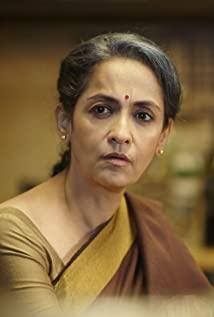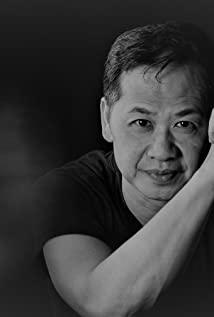In the past two years, because of some things on the border, the Indian film boom that was not considered mainstream has quickly receded.
However, the Indian people's ability to describe the reality is still relished by many movie fans, such as the humorous satire of the rigid educational concept in "Three idiots in Bollywood", and the monopoly of educational resources vividly depicted in "Starting Line" Wait, every topic is very down-to-earth and hits the Chinese people's heart again and again.
So many Chinese audiences have a subtle sense of closeness to this distant and mysterious country: it turns out that they have the same troubles as us.
Recently, another Indian film focusing on reality has resonated with many Chinese people - "White Tiger".
The film is adapted from the "New York Times" bestseller "White Tiger" and tells the story of Baram, a low-caste youth from a small village in central India, who came to New Delhi to work in a high-caste rich family. During this period, he made a sharp criticism of the severe class differentiation in Indian society.
Whether it's the story frame or the core theme, this makes people think of the classic Korean film "Parasite".
However, Scarlet believes that there are indeed similarities between the two, but there is a world of difference.
(The following contains some spoilers)
1
The movie begins when Baram was a child.
Born into a poor family of low caste, he not only failed to receive a formal education, but was also forced to work in a teahouse since he was a child - smashing coal, a monotonous and tiring job that consumed Balam's entire adolescence.
It is foreseeable that if this development continues, his life will have no bright future - when he becomes an adult, he will find a poor woman to marry, give birth to a child, and continue to smash coal.
Balam is not reconciled to this. He yearns for the flowery world outside and wants to experience a better life.
After all, smashing coal is too boring.
One day, he happened to meet a wealthy family of high caste from Delhi on the street, and inquired about Ashok, the second son of the family, and wanted to find a driver to drive a private car. Baram immediately decided that his opportunity had come.
Because Ashok looks personable, courteous, and like a good host.
After convincing his grandmother, Baram quickly went to Delhi, and with his three-inch tongue, he persuaded the rich, who were very taboo about his caste, to become Ashok's driver.
In the days that followed, Baram not only earned a (relatively) generous salary, but also developed a deep friendship with Ashok, and even Ashok's wife, Pinky, treated him well.
All this made him feel extremely happy, like a spring breeze.
Until one night, Pingqi was too excited for her birthday and accidentally killed a girl with her car, and the situation took a turn for the worse.
Without any communication with Balam, the rich man and the eldest son forced him to sign the confession to cover for Pingqi. In a situation where he was at a loss and panic, he had to compromise.
Afterwards, Balam was in great pain, not only because he was going to jail, but because his beloved Ashok and Pinkie betrayed him.
Although Baram was lucky to escape prison later, his relationship with the Ashok couple could never go back.
His heart has changed...
2
In "Parasite", there is a very detailed comparison and description of the wealth gap between the protagonist Kim Ki-taek and the owner, President Park, such as the oppression and crampedness of a semi-basement versus the spaciousness and comfort of a mansion.
However, there is no such detailed depiction in "White Tiger", because there is no need for comparison between adobe houses and luxury houses.
The gap between the rich and the poor is huge!
However, Balam was not full of complaints and tricks like Kim Ki-taek. He was happy and simple, like a child who was not contaminated by the world.
Because, under the brainwashing of the caste system, Baram believes that the lower castes should live such a hard life. That's why, Balam's future is bleak, but the whole family, including his grandmother, has never worried about him.
They all felt that this was the fate of the lower castes.
At the same time, the lower castes still harbor a morbid worship of the higher castes, because the latter are considered to be the closest people to God in traditional religious culture, noble and noble.
Therefore, compared to Kim Ki-taek's cunning when facing President Park, Balam was almost prostrate in front of the rich family.
He will salute his master,
Do every job well beyond standard,
Moreover, he will never take advantage of his position for personal gain.
Even when negotiating salary, Baram compared the rich family to his parents and offered to take a pay cut.
After all, being able to serve the upper castes is the highest ideal in the life of the lower castes, what more can you expect?
Baram's grandmother and the whole family acted even more exaggeratedly. They actually supported Baram in taking the blame for Pinky and were proud of it. Grandma even agreed to serve as a witness for his surrender.
It is not difficult to find that this deformed loyalty is actually a profound servility: it is content to be squeezed and contented with it. (The happiness index of Indian people is very high)
In this regard, there is a very vivid description in the film: the chicken coop rule.
The low-caste groups in India are like chickens in cages. Even though they know they will be slaughtered, they will not try to escape even though they witness the tragic slaughter of their own kind every day.
As servants of the upper caste groups, they are so loyal that even if the keys to liberation are handed to them, they will throw it back cursing.
The caste system is the chicken coop that imprisons the thoughts of the lower castes, and it has been invincible for thousands of years.
But India claims to be a free country, and the film jokes about it, and in the subsequent plot, Baram also gradually embarked on the road of awakening.
3
In the movie "Parasite", Kim Ki-taek once thought that his disguise was perfect, and he slipped into a class worthy of a dialogue with President Park, and the latter and his wife did behave quite politely. But the truth is, the smell on him has long since betrayed him: one lives in a basement and washes the bottom floor of his clothes with cheap detergent.
Kim Ki-taek, who discovered the truth, was shocked to realize that the gap between classes was so huge that his own cleverness was completely vulnerable.
Balam's awakening was relatively slow.
He has long been domesticated by the caste system and quite abiding by the rules, and has never had the idea of raising his own class.
Especially the domineering demeanor of the rich man and the eldest son, he was so shocked that he didn't dare to say a word. Once, Balam smiled at the eldest son and was scolded by the latter, because the lower castes were not qualified to smile at the higher castes.
However, the second son, Ashok, gave Balam a different idea.
This young man, who had just returned from the United States, looked gentle and kind, and was different from the rest of the rich family, which was why Balam just took one look and decided that he was a good host.
What surprised Baram even more was that his words and deeds were also unusual.
Ashok doesn't care about Balam's caste, doesn't call him around, and always chats, jokes, and shares his little secrets with Balam very cordially.
Ashok even refused to be the "master" and asked Baram to call him by his first name.
Because the education he received in the United States gave him the idea that everyone is equal, he told Baram that everyone is the same.
When Ashok was working, he always took Balam by his side, and in his spare time, the two played like brothers.
He also predicted that the group represented by Baram would be the largest untapped market in India.
The same is true of Ping Qi, who is also deeply influenced by Western culture. She is not a cold lady in a mansion in the traditional impression. Pinkie has a lively personality, dresses boldly, and loves to play around.
As a woman, she dared to contradict her father-in-law. As a lady, she was informal and often got close to Balam.
She even encouraged Balam to break out of her caste circle.
This wave of "non-traditional" operations by the Ashok couple allowed Baram to experience unprecedented warmth and care, and this is a precious content that his family has never given: low caste does not mean inferiority.
This also prompted Baram to decisively reject the arranged marriage arranged by his grandmother and try to control his own destiny. At the same time, he is also convinced that between the Ashok couple and himself, there is a feeling of transcending the shackles of the caste system.
But a car accident shattered everything. In order to save themselves, the Ashoks sacrificed him very easily.
Baram didn't immediately see the nature of the incident.
This is not only because his mind is imprisoned, but also because the Ashok couple are too good at pretending.
When Balam was forced to sign the guilt, Pinkie chose to avoid it, and although Ashok acquiesced, he was angry. After the turmoil, Pingqi took the lead to appease Balam, and because of his grievance, after a big quarrel with the rich father-in-law, he returned to the United States alone.
It seems that this bad idea is not the original intention of the two of them.
So much so that Balam has been entangled, "Why did the Ashok couple betray me?" Until one day, Ashok, who called him his brother, embarrassed Balam in front of others and knocked him down just because he was in a bad mood. After eating his elaborate food, Balam came to his senses: after all, he is the master of the upper caste, and he is the servant of the lower caste after all.
The Ashok couple never betrayed themselves, because they have always been a traditional master-servant relationship, and there is no emotion between them that Baram thinks.
And for their own benefit, it is something that every high caste master will do. After all, in the context of the traditional caste system, all this is taken for granted.
Even the strong American values have not been able to shake this deep-rooted thinking, and eventually become a gorgeous disguise of emotional PUA by the upper caste masters to the lower caste servants.
The awakened Balam gradually saw the ugly face of the Ashok couple, and finally realized that only by fighting for themselves can the lower castes usher in a real happy life, not by allegiance to a certain high caste master.
He wants to get out of the chicken coop.
In the end, like Kim Ki-taek, Balam killed his master.
4
In addition to sharply depicting the class differentiation caused by traditional religious culture, "White Tiger" also has a magical description of the class problem formed by the modern political system.
Its representative figure is the female politician who does not have many appearances.
She comes from the lower caste class, advocates socialist values, and was once an idol in Balam's heart. But in fact, after winning the votes of the lower castes and being successfully elected, she is just busy for personal gain.
Balam had witnessed the female politician blatantly extorting money in order to help the wealthy family hide their tax problems.
They also came together completely towards the end of the film.
On the day of the election, the streets were full of slogans promoting democracy, but Balam only saw the collusion of power and money. He felt deceived and fooled once again: the election, which was pinned on by countless bottom groups, did not help the lower castes change. situation, because it has long since become an accomplice of the caste system.
It has even evolved a new dimension of caste division on the basis of tradition: the powerful and the powerless.
In this regard, Baram said jokingly: "You must not be a poor man in a liberal democracy."
And this also accelerated his subsequent resistance.
However, the explanation of this part is relatively weak, and the image of the female politician is also very abstract. She is more used to deepen the expression of Ashok's sins as a high caste.
The film is obviously more inclined to criticize the caste system.
5
It can be seen that although "White Tiger", like "Parasite", depicts class issues in modern society, it deeply integrates India's own special national conditions.
Very distinctive.
However, the handling of the ending part is a bit unpleasant.
The tragic end of the Kim Ki-taek family once again confirmed the "class gap", which can be said to be in line with the theme. But "White Tiger" arranged a cool ending for Balam: with his agility and intelligence, he not only escaped the punishment of the law, but also quickly became a rich boss.
For the film, this is simply devastating destruction: if class can be so easily crossed, how can it become a chronic disease of human society?
The original sharp mind awakening theme has instantly become a chicken-blooded story of a small person turning over.
The most ridiculous thing is that Balam is also compared to the legendary white tiger - the only one who can stand out from the group.
It seems that he was able to succeed because he was chosen by God or was mysteriously empowered.
It makes people feel that this is going back to the old way of religious thinking of the Indians: using divine power to solve troubles.
Of course, the "reversing" at the end can't hide the overall light of "White Tiger".
In recent years, among the Indian caste-themed films that have sprung up like mushrooms, it is definitely the most profound one, especially for the huge influence of "master-servant love" in the caste system, with extremely detailed and vivid portrayals , like the "bottom smell" in "Parasite", it has a shocking feeling that directly hits the soul.
Welcome to the public account: Indianmovies
View more about The White Tiger reviews











